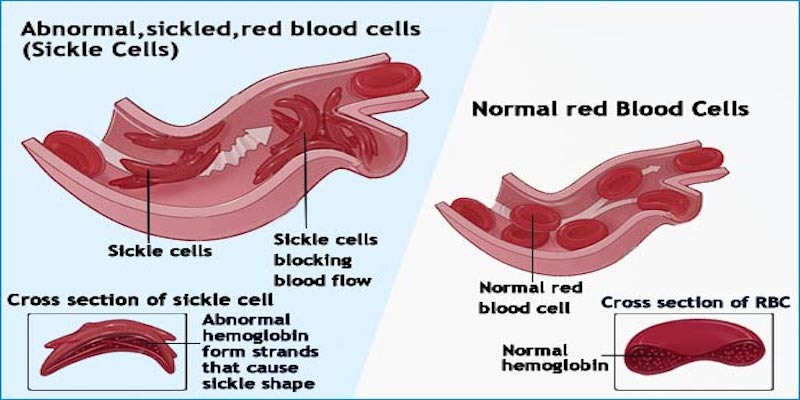One evening around lunch time, my daughter came to me and said, “Mommie, my back really hurts.” I took a few minutes to look at her back and but I didn’t see a physical problem. About 30 minutes later, she begin to scream because her back pain had traveled to her lower back and buttocks. Because she has sickle cell, my first thought was to hydrate her. Giving her more fluids, always seems to help when she’s ill.
When the pain did not subside after 10 minutes, I thought perhaps she is having a sickle cell pain crisis. The screams were similar, but because her pain was not consistent and would wear off and then return hours later so I felt that something was different.
Children with sickle cell often have protruding bellies, so when her back pain turned into stomach pain, I figured, something was wrong with her stomach. For more than a week, I noticed that her stomach appeared larger than normal and she had a slight fever, but figured that it was just a symptom from having Sickle Cell.
When her pain continued, and I thought of all the possibilities that could be wrong with her and I realized her stomach felt very hard to the touch and I wasn’t able to hear the noises in her stomach that meant it was digesting her food, I knew I needed to act fast because I felt the problem was related to her bowels.
To make a long story short, after trying over the counter medicines for constipation, I took her to her pediatrician who first mentioned to me a possibility of an ileus, which sometimes occurs in sickle cell patients. According to Medical-dictionary.thefreedictionary.com:
There are two types of intestinal obstructions, mechanical and non-mechanical. Mechanical obstructions occur because the bowel is physically blocked and its contents can not pass the point of the obstruction. This happens when the bowel twists on itself (volvulus) or as the result of hernias, impacted feces, abnormal tissue growth, or the presence of foreign bodies in the intestines.Unlike mechanical obstruction, non-mechanical obstruction, called ileus or paralytic ileus, occurs because peristalsis stops. Peristalsis is the rhythmic contraction that moves material through the bowel. Ileus is most often associated with an infection of the peritoneum (the membrane lining the abdomen). It is one of the major causes of bowel obstruction in infants and children.


